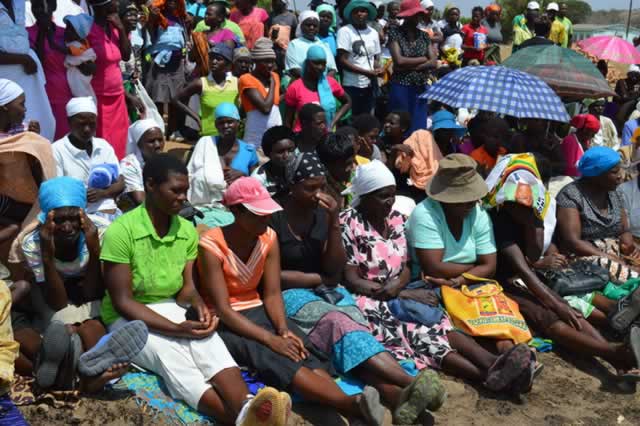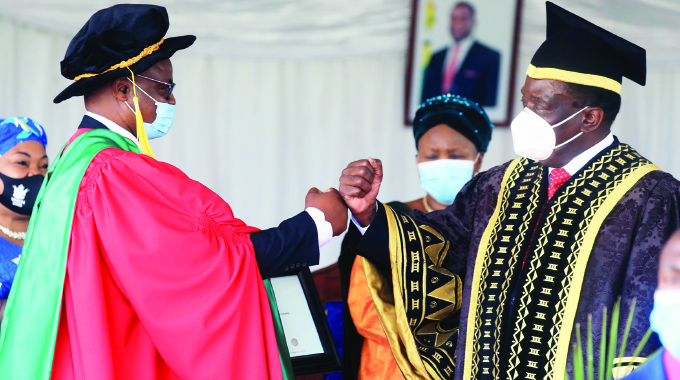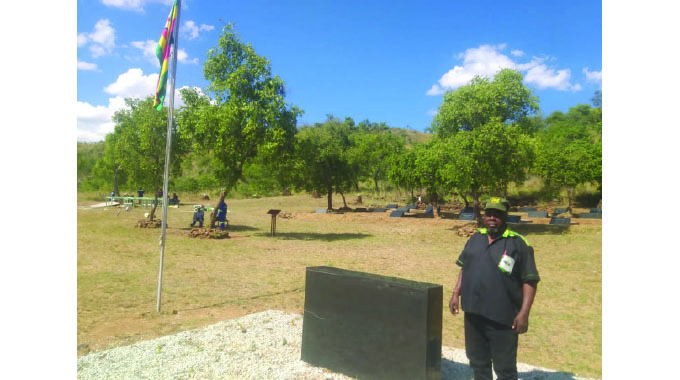Rural women empowerment: Key element in building Covid-19 resilience

Features Correspondent
It is said when you empower women, you empower the whole community.
Our second year of the global pandemic has made it more challenging for rural women to access markets, as they make up a large proportion of smallholder farmers.
This makes the theme of ‘empowering women by building resilience to Covid-19’ more pertinent, as we celebrate International Rural Women’s Day, and bring to light rural women’s voices.
While women and girls do most of the productive work and are the first adopters of climate smart and conservation approaches, they continue to face barriers, including ownership of productive assets and control over income.
As United Nations agencies in Zimbabwe, we have purposefully stepped up collective efforts alongside partners, including the Government of Zimbabwe and international governments to empower rural women.
Our projects strengthen their capacities through skills building, education and training, to better cope with shifts or changes to the environment such as droughts, or economic shocks like Covid-19.
A group of females participating in a resilience building project in Matobo district, Matabeleland South province, shared the importance of empowering women through skills building.
The lead committee member, Tusiwe, is a charismatic woman.
She said: “We only started organic gardening after practicing in a small area. Every week, we would get better with training. This is a learning centre for everyone, we take these agriculture lessons and share them with our community.”
Eventually, the committee (36 women and 24 men) agreed to build and maintain a community garden through sustainable organic farming, which they say is healthier, uses less water, and is more cost efficient and better for the environment.
The consistent food supply has been sustaining the community throughout the pandemic, with women noting that access to markets has been a challenge in selling their excess food supply.
“This garden feeds over 50 households, that’s up to 200 people with a direct supply of food,” said Tusiwe.
This resilience building programme began in 2019, which aims to empower women and men through a community building asset approach — where people themselves determine what is needed and maintained.
“This equal participation, is key to our empowerment,” said Tusiwe.
While over 80 percent of the produce from the garden is consumed directly, the remaining 20 percent of food is sold locally to markets. The group reinvests their earnings in other projects like broilers.
The women share that sometimes, the act of giving extends beyond their circle.
“We like to go out in the village and see who is in need. We give children food, clothes or even school fees,” one of the women shared.
Investing in rural women can have positive ripple effects through the community.
It can enable girls and women to move beyond the cycle of dependence and be active participants in the local economy.
A group of women in Gwatinyanya in Masvingo, said they are completely self-sustainable, following four years of resilience building projects.
Chipo Makasi, a remarkable mother of 10 and chairperson of the committee, said: “You don’t see a white elephant here. Because of the drought, we did not have enough food during the lean seasons. Through this project, we have learned many skills, we don’t need food support anymore. We can do this on our own.”
The group said, rather passionately, about the value of insurance to mitigate against drought and how savings and lending has helped the women to secure more assets.
They also said women are the centre of the home in rural areas.
“You need to be strong, creative and learn how to save to find solutions, because children always come to their mothers first when there is a drought,” said Chipo.
“Solutions are indeed within our reach.”
Evidence has shown that if women have access to inputs and productive resources, in addition to extension advisory services, they are able to significantly increase crop and livestock production as smallholder farmers. Breaking the cycle of dependence is equally important.
“We would tell our girls that marriage is not a ticket out of poverty, but we had nothing to show them. Now we have something real for them to see and be part of, this is a big change,” said Chipo.
Similarly, the Cyclone Idai recovery programme has rehabilitated seven irrigation schemes, provided agricultural inputs and established 64 community gardens that are transforming the lives of rural women.
For widowed mother of seven, Veronica Betero, from Buhera District, the project has changed her life.
“I harvest my vegetables and sell in the community in exchange for grain, or sometimes I can get a dollar here and a dollar there to pay for the grinding mill or other household foods,” she said.
The garden members grow vegetables and sell mainly in the local community. Some customers even order in bulk for resell.
Before joining, Veronica says that access to land was more challenging.
She explains: “Now, with the community garden, I do not have to rent land from others in the community”.
It’s through projects like these, that the United Nations agencies in Zimbabwe collectively contribute resources, expertise and partnerships to deliver projects with impact and lasting change to rural women.
Women and girls are more vulnerable to climatic and other shocks.
Limited access to productive resources, unfair burden of household care work and productive work affects their mobility and meaningful participation in economic activities.
Through transformative gender approaches to programming, the UN has seen increased agricultural productivity and shifts in the structure of ownership of assets and decisions making in rural households.
This year also marks the United Nations’ Global Food Systems Summit, where countries are determining how to best manage their food systems.
This means paying closer attention to the way food is produced, packaged, processed, marketed and consumed across Zimbabwe.
As women make up large proportion of smallholder farmers, their voice through this process has been critical to finding holistic solutions to strengthening Zimbabwe’s food systems over the coming years.
Let us continue empowering women, as key to the economy and broader well-being of the community.







Comments